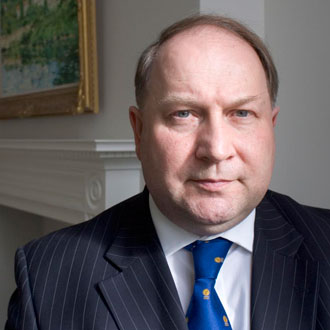The results of one of the most comprehensive surveys and information gathering exercises ever undertaken on the state of GP premises reveals a sad truth: many GP practice buildings are cramped, inadequate and underfunded.
Over 4,700 practices – 47% of the UK total – sent us their views as part of the BMA’s major survey into this topic. Over half said there had been no significant investment of refurbishment in their practice in the last ten years and a number of GPs told us that the funding they had been given was merely touching up around the edges. One GP for example said that a small amount of money had made the premise look better by giving it a new lick of paint, but nothing had been done to address more substantive issues with their practice building.
The impact of this starving of resources is very clear. Almost six out of ten said they had to share consulting rooms or employ hotdesking, with four out of ten saying this limited the access they can provide to patients and had a detrimental impact on the number of appointments available. The cramped nature of premises meant that almost four out of ten felt they were struggling to deliver basic GP services right now and three out of ten said it scuppered any chance of offering additional services. Almost seven out of ten said they did not have enough room to conduct training or education programmes for staff.
The many GPs who shared their personal experiences about their premises put some flesh on the bones of these statistics. There are practices where admin staff have to work in portkabins. Others have had to madly scramble to consume every square inch for consulting and treatment, cutting back on space for patients to wait in. One practice has to pipe in loud music to their waiting area so that patients don’t overhear consultations in rooms not designed for that purpose. Many, many practices also expressed a consistent frustration that they actually want to provide more services for their patients, but they physically don’t have the room to do so.
What we are seeing is the result of decades of neglect. Many practices were opened in a different age when there were designed to cater for smaller patient populations. We are now in a changed world where GP services are under pressure from rising patient demand, falling resources and the need for more complicated, intensive treatments for our ageing population. Time has stood still for GP premise while everything has changed around them.
What we need to do is recognise that this situation can’t go on. We cannot stand by and allow practices to burst at the seams. The Government needs to listen to the BMA’s Your GP Cares campaign and look at real, sustained investment in GP premises that allows us to fight their modern challenges.
To try and push this forward, we have organised a special seminar today with the key stakeholders, which includes Health Minister Lord Howe and senior policymakers from the Department of Health, NHS England, NHS Property Services, NHS Clinical Commissioners and the Primary Care Premises Forum.
This will not be an easy battle to win, but the BMA will continue to make it clear that if we want GPs to be able to go on delivery care, they are going to need GP buildings to be brought up to scratch and not left to collapse.
Dr Peter Holden is a Matlock GP and a member of the GPC for 33 years. The views are his own.
Pulse October survey
Take our July 2025 survey to potentially win £1.000 worth of tokens













